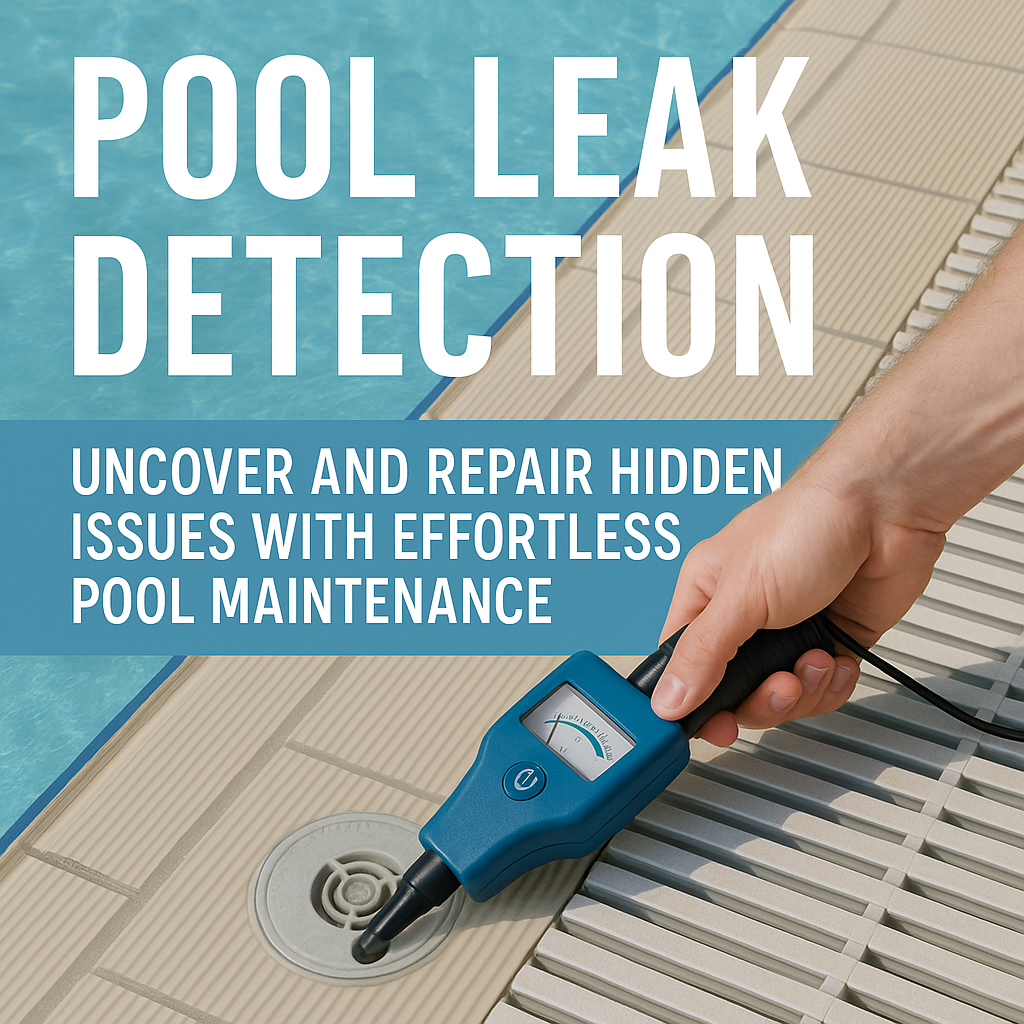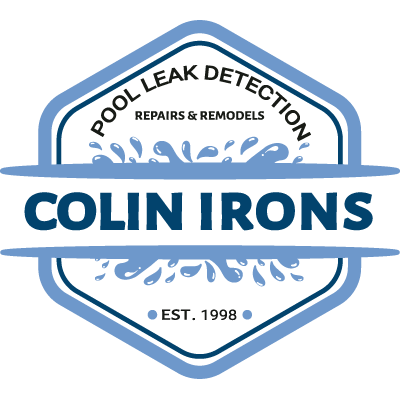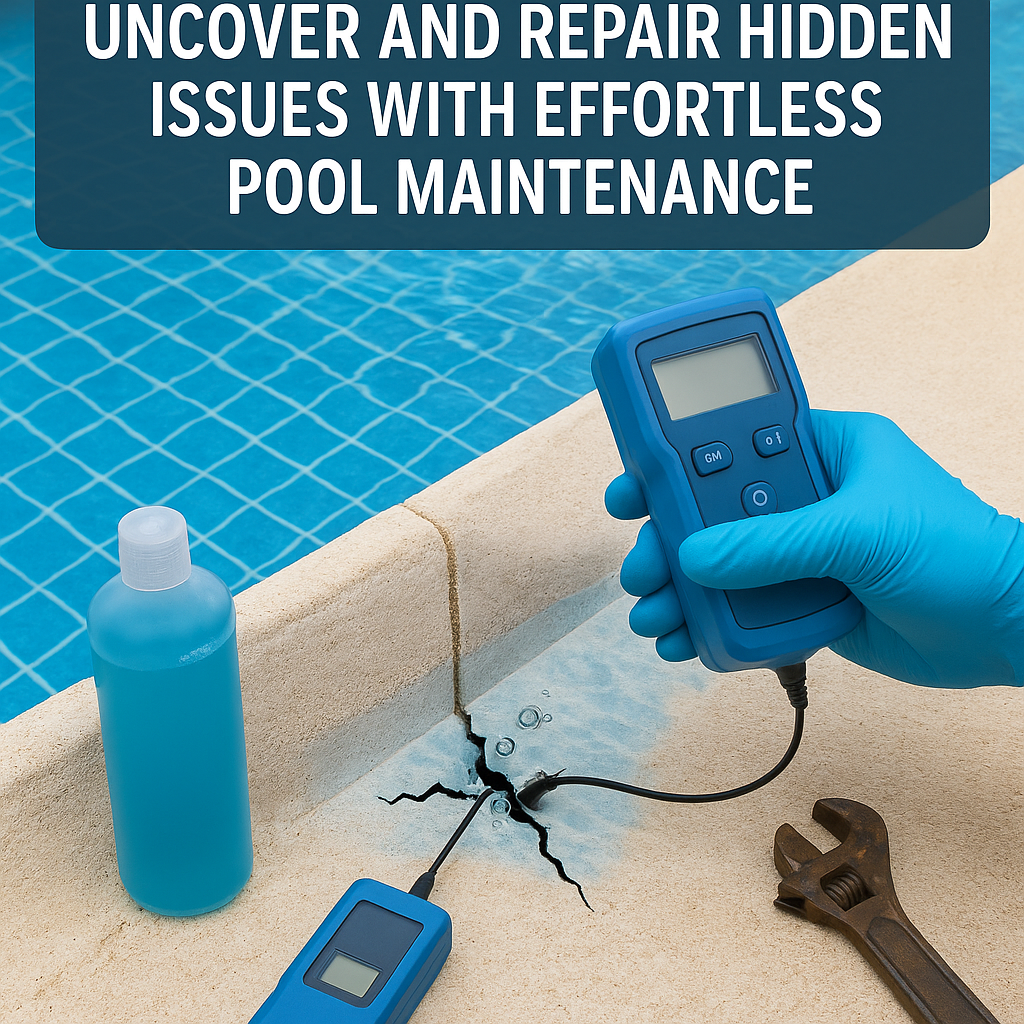Pool leak detection is crucial for maintaining the longer lifespan of your pool. It can preserve its aesthetics, functionality, and healthiness, not to mention its contribution to reducing the expensive repair costs and high water bills associated with unchecked water leakage. In this article, we’ll delve into pool leak detection, pool leak repair, and effective pool maintenance methods. Using our expert tips and tactics, you’ll be able to manage your pool upkeep almost effortlessly and enhance the durability and beauty of your pool landscape.
Why is Pool Leak Detection Important?

Regular inspection for early pool leak detection is an integral part of any comprehensive pool maintenance plan. Pool leaks occur due to various reasons, including age, improper construction, wear and tear, and even harsh weather conditions. Leaks may lead to extensive damage if left untreated, escalating into problematic issues such as cracks, shrinking pool liners, or compromised pool structure.
The earliest pool leak detection could save you from exacerbated problems that result in expensive repair costs. Besides, leaks can cause significant water loss, resulting in inflated water bills. It’s not just about saving money – it’s an environmentally responsible practice too.
Identifying Signs of Pool Leakage
Detecting pool leaks can be a daunting task, especially without a trained eye. However, some common signs can alert you to potential leakages:
1. Rapid water level reduction: If the pool water reduces rapidly beyond the regular evaporation level of 1/4 inch daily, it’s a clear sign of potential leakage.
2. Damp spots around the pool: Persistently damp or overly green patches of grass near your pool may indicate a leak in the plumbing system.
3. Cracks in the pool deck or shell: It’s a worrying sign of potential leakage when there are cracks or fractures.
4. Unusually high water bills: A sudden spike in your water bills can be a strong indication of an undetected pool leak.
5. Air in the pool system: If there’re bubbles coming out of the return lines, or your pump has difficulty priming, it might indicate a suction-side leak.
Pool Leak Detection Techniques
Detecting a pool leak is best performed by trained professionals who have the necessary experience and equipment to pinpoint even the smallest leaks. However, if you wish to search for the leaks yourself before calling the experts, here are few techniques:
1. The Bucket Test: This simple technique evaluates if the water loss is due to evaporation or leakage. Fill a bucket 3/4 full of water and place it on the pool steps (the water inside and outside of the bucket should be at the exact level). After a few days, if the water level inside the bucket remains significantly higher than the pool water, there’s likely a leak.
2. The Dye Test: This method is ideal for identifying leaks in specific areas. By placing a small amount of dye near the suspected leak, observe if the dye is sucked out by the leak.
Pool Leak Repair and Effective Pool Maintenance
Once a pool leak is detected, it’s crucial to repair it promptly to mitigate further damage. Repairs could range from patching minor leaks in the pool liner to major renovations for fixing structural issues. A pool repair specialist will efficiently manage the repair process and give accurate advice on reinforcing the pool structure, maintaining the plumbing system, and preventing future leaks.
Effective pool maintenance isn’t just about repairing leaks. It also involves regular cleaning, balancing water chemistry, checking and maintaining the pool equipment, and in winter, properly closing the pool. Regular maintenance not only enhances the pool’s appearance and functionality but also reduces the chances of hidden leaks and expensive repairs in the future.
Final Thoughts
Pool leak detection and repair are crucial and quite manageable within a robust pool maintenance plan. The key is early detection, minimizing water loss, efficient pool leak repair, and regular maintenance. By embracing these steps, you will prolong your pool’s lifespan, maintain its aesthetic appeal, and save yourself from hefty repair bills. Happy swimming!


